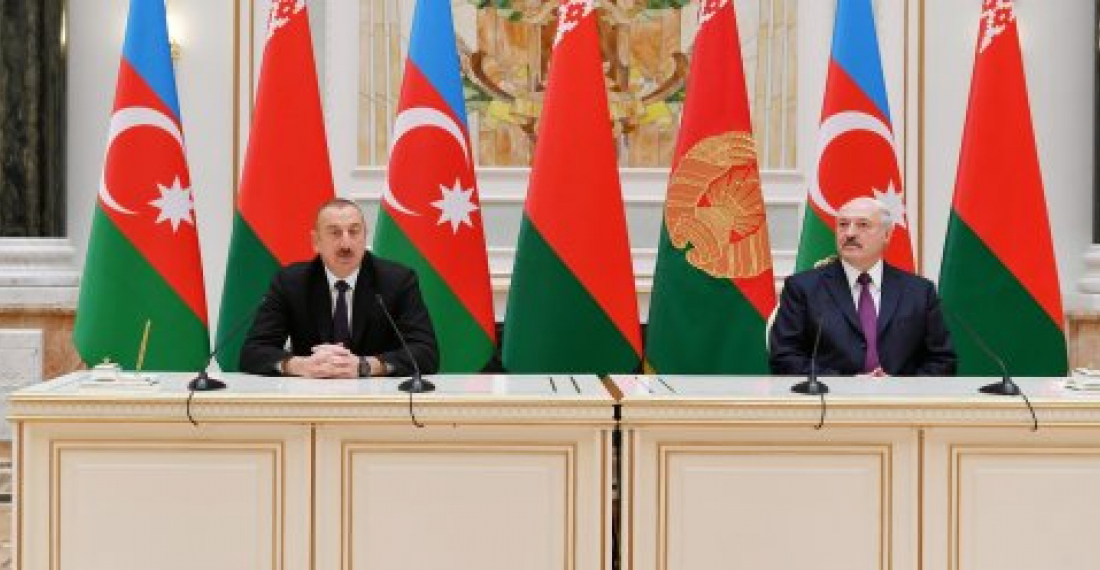Azerbaijan is to buy more arms from Belarus. A memorandum of understanding between the two countries was signed during a one day official visit of president Ilham Aliyev to Minsk on Monday (19 November).
Following talks with Belarus president Alexander Lukashenko, president Aliyev announced that a a memorandum of understanding was signed between the State Military-Industrial Committee of Belarus and the Ministry of Defence of Azerbaijan on the development of mutually beneficial bilateral cooperation in the supply of weapons and air defense equipment. "Shortly it will be transformed into a contract for the purchase of the next batch of military equipment from Belarus," Aliyev told journalists.
This was Aliyev's fifth official visit to Belarus as president and the two presidents hailed the level of relationship between the two countries.
The cosiness of Azerbaijan - Belarus relations has however upset Armenia, Armenia and Belarus are technically allies since they are both members of the Russia led Collective Security Treaty Organisation (CSTO), while Azerbaijan is not. Armenia has often in the past complained about Belarus arms sales to Azerbaijan. Releations however have taken a turn for the worse in recent weeks following Armenia's recall of General Khachaturov from the post of CSTO Secretary-General. Armenia insists that it has the right to appoint Khachaturov's replacement, but Belarus and some other countries say that the post should now go to the next country in line by rotation. The dispute became nastier last week after Armenia accused Belarus of discussing CSTO affairs with non-member state Azerbaijan.
On Monday, Armenian prime minister Nikol Pashinyan spoke about the current state of relations with Belarus at a political rally in the town of Gavar, ahead of next month's parliamentary elections. Pashinyan said "some countries are making an attempt, or will attempt, to treat us as a small country, a small people". "That will not happen [anymore] because we perhaps are a small number of people, but we are a great nation because we are a people with a millennial history, we are people of culture, we are a people of [military] generals."
source: commonspace.eu with agencies
photo: President Ilham Aliyev of Azerbaijan and president Alexander Lukashenko of Belarus at their meeting in Minsk on 19 November 2018






